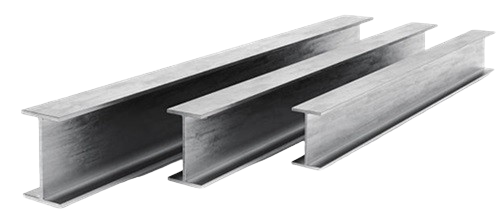BIS Certification for Steel Billets, Bars and Sections for Boilers IS 2100: 1970
Steel billets, bars, and sections for boilers serve a critical role in the manufacturing of boiler components due to their specific mechanical properties and durability. These steel products are designed to withstand high temperatures, pressure, and corrosive environments typical of boiler operations. The use of high-quality steel ensures that boiler components such as tubes, flanges, and pressure vessels maintain structural integrity and reliability over prolonged periods of operation. Steel billets, bars, and sections are essential for constructing robust boiler assemblies that meet stringent safety and performance standards, making them indispensable in industries ranging from power generation to industrial processes where efficient and reliable steam generation is vital.
Importance of BIS Certification
BIS certification for steel billets, bars, and sections intended for boilers is crucial to ensure these materials meet rigorous quality and safety standards mandated by the Bureau of Indian Standards (BIS). This certification verifies that the steel possesses the necessary mechanical properties, such as high strength, toughness, and resistance to high temperatures and corrosion, which are essential for the reliable performance of boiler components under demanding conditions. Adherence to BIS standards ensures product consistency, reliability, and safety, preventing potential failures that could lead to accidents or operational disruptions in boiler systems. BIS certification also instills confidence among manufacturers, regulators, and consumers, promoting adherence to best practices and ensuring that steel used in boilers meets the highest quality benchmarks required for safe and efficient operation in industrial settings.
Indian Standard IS 2100: 1970
As per the latest Quality Control Order (QCO) issued by the Ministry of Steel, Government of India on 5th February 2024, steel billets, bars, and sections intended for boilers must conform to the Indian Standard IS 2100:1970. This standard specifies the essential requirements for the chemical composition, mechanical properties, dimensions, and manufacturing processes of steel used in boiler components. Compliance with IS 2100:1970 ensures that the steel billets, bars, and sections possess the necessary characteristics such as high tensile strength, toughness, and resistance to high temperatures and corrosion, which are critical for their performance in boiler applications. Adhering to this standard is crucial to uphold safety standards, ensure product durability, and maintain the reliability of boilers used in industrial operations across India.
Key highlights
| Product Name | Steel Billets, Bars and Sections for Boilers |
| Applicable Indian Standard | IS 2100: 1970 |
| Applicable Certification Scheme | Product Certification Scheme (ISI Mark Scheme) Scheme 1 - Schedule 2 |
| Compliance Requirement | Mandatory |
| QCO Link | Steel Billets, Bars and Sections for Boilers |
| Scope as per Standard |
This standard covers the requirements for the following grades of steel billets, bars ( other than rivets and stay) and sections for boilers:
Grade 1: Billets, bars for forging. Grade 2: High tensile billets, bars for forgings and sections. |
Tests
The following are the major tests for Steel Billets, Bars And Sections For Boilers.
- Manufacturer
- Chemical Composition
- Freedom From Defects
- Dimensions & Tolerances
- Calculation Of Weight
- Tensile Test
- Bend Test

NOTE:
For Detailed Information about the Procedure for BIS ISI Certification, Visit :
Timeline for BIS Certification
The approximate timeline to obtain BIS certification for Steel Billets, Bars and Sections for Boilers to use the ISI mark as per IS 2100: 1970 is as follows:
- For Indian Manufacturers (Standard Timeframe – 30 days)
- For Foreign Manufacturers (Standard Timeframe – 180 days)
Conclusion:
In conclusion, steel billets, bars, and sections play a crucial role in the construction of boiler components, ensuring durability and reliability under extreme conditions of temperature and pressure. BIS certification according to IS 2100:1970 is essential to guarantee these materials meet stringent quality and safety standards, ensuring they possess the necessary mechanical properties to withstand the rigorous demands of boiler operations. Adherence to these standards not only ensures product reliability and safety but also supports industrial efficiency and the longevity of boiler systems across diverse applications in India's industrial landscape.
For more updates and detailed procedures, stay connected with Aleph INDIA and ensure your products are always compliant and top-quality.
International Audits & Participation
Testimonials
BIS REGISTRATION FOR ELECTRONIC & IT PRODUCT
In the era of globalization, world trade is growing rapidly and henceforth, Manufacturing and Import/Export businesses are also growing drastically...View More
BIS CERTIFICATE FOR FOREIGN MANUFACTURER
The Economy of India-the fastest developing economy on the globe with the capabilities that help it matches up with the biggest international...View More
PRODUCT CERTIFICATION SCHEME (ISI MARK) FOR DOMESTIC MANUFACTURERS
Anything a person buys from food to cars, clothes to electronics, branded to unnamed products there is always a question that wanders in one’s...View More
WIRELESS PLANNING AND COORDINATION (WPC)
WPC: Wireless means communication done from one point to another point without the wires and cables. Electromagnetic waves carry the ...View More
BUREAU OF ENERGY EFFICIENCY (BEE) CERTIFICATE
BEE CERTIFICATE: Energy is the future, and its conservation is the way of the bright future. Everyone claims the environment is important...View More
E-WASTE MANAGEMENT
E-waste is one of the world's fastest-growing trash streams. We currently manufacture almost 50 million tones of it each year...View More
View All Services
Request a call back.
Would you like to speak to one of our Senior Technical advisers over the phone? Just submit your details and we’ll be in touch shortly. You can also email us if you would prefer.






























